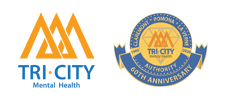Like many new years, 2020 started on a hopeful note. The number itself was inspiring, suggesting optimal clarity and sharpness of vision. As the COVID-19 pandemic and civil unrest have changed daily life, our resiliency has been tested. We don’t know what the "new normal" will look like. In many ways, the new normal will have us mourning for lives, moments and opportunities lost. But hopefully in other ways, the new normal will bring with it a new appreciation for connection, the freedom to do things we enjoy, human touch and even technology. We hope that the new normal will be filled with hope for equality, empathy and dialogue about what connects us to overcome what divides us. While we cannot always prevent or remove suffering and pain, we can practice empathy by listening for understanding rather than agreement. We can seek to have uncomfortable conversations that lead to understanding and love. We can work to find our own voice and then use our voice to cultivate hope and love.
September is an important month for two national public health observances that can remind us of all the reasons for tapping into and inspiring hope, resilience and recovery. During Suicide Prevention Week (September 6-12) thousands of people around our state and the world join together to raise awareness that suicide can be prevented, to honor the memory of those who have died by suicide, and to support healing among those who have survived the devastating impact of suicide. In addition, National Recovery Month, also held in September, celebrates the millions of Americans who are in recovery from mental health and substance use disorders and reminds us that treatment is effective, and people can and do recover.
The Suicide Prevention Week 2020 theme encourages us to celebrate the resilience people in our communities who are experiencing pain, loss, discrimination and mental illness draw on for the strength to rebound, rebuild and recover. In acknowledging them and their journeys, we recognize that the path forward for those struggling with life stress, trauma, mental illness, and substance use is not without difficulties, but it is also unique, nonlinear, and entirely worth it; there is hope.
When we look at the principles highlighted this year, they are undoubtedly interconnected; hope drives resiliency and recovery, and resiliency and recovery build hope. Let us use this month to do just that, lift one another up and provide inspiration and a clear vision of hope, recovery and resiliency. Let us work together in a way that unites individuals, families, communities, mental health, substance use and suicide prevention to spark conversations and increase awareness. And let us remind one another that although hope can be hard work, believing in recovery and fostering resilience in the face of serious challenges has the ability to bring about lasting positive change.
Ways in Which You Can Share Your Support:
-
- Reflect on what gives you hope by creating the Heart Wall Installation in your home or community
- Share a message of hope by placing a candle or light in a window at 8pm on World Suicide Prevention Day, September 10, 2020.
- Read through Each Mind Matter’s Stories to hear from real life people who are committed to advancing mental health and be inspired by their stories of recovery.
- Share the importance of social emotional learning to foster resilience in children with parents and educators. Try out the Journaling Activity.
- Visit the Know the Signs website to learn about the warning signs of suicide, how to have a conversation and where to get help.
Tri-City Mental Health is here to support individuals and families in Pomona, La Verne and Claremont
-
- Do you need someone to talk to, and are not experiencing a crisis? Talk to a Peer Mentor about a variety of topics such as stress, relationships, feeling isolated, or any other concerns you want to address. Referral forms can be submitted to p2p@tricitymhs.org. Please call our main line at (909) 623-6131 during business hours and ask to speak with Chris Anzalone and we can connect you with a trained peer support volunteer.
- If you are a client of Tri-City, please reach out to your treatment team for support. If you are experiencing emotional distress and are not receiving treatment services at Tri-City, call our 24/7 Supplemental Crisis line at (909) 623-6131 to speak with a clinician.
- Talk with others who have been through similar life experiences. Our Wellness Center is now offering over 20 virtual support groups. To participate, please pre-register by contacting the Wellness Center at (888) 593-4448 (toll free) or wellness@tricitymhs.org.
For additional resources and activity ideas visit Each Mind Matter’s 2020 Suicide Prevention Activation Kit.

